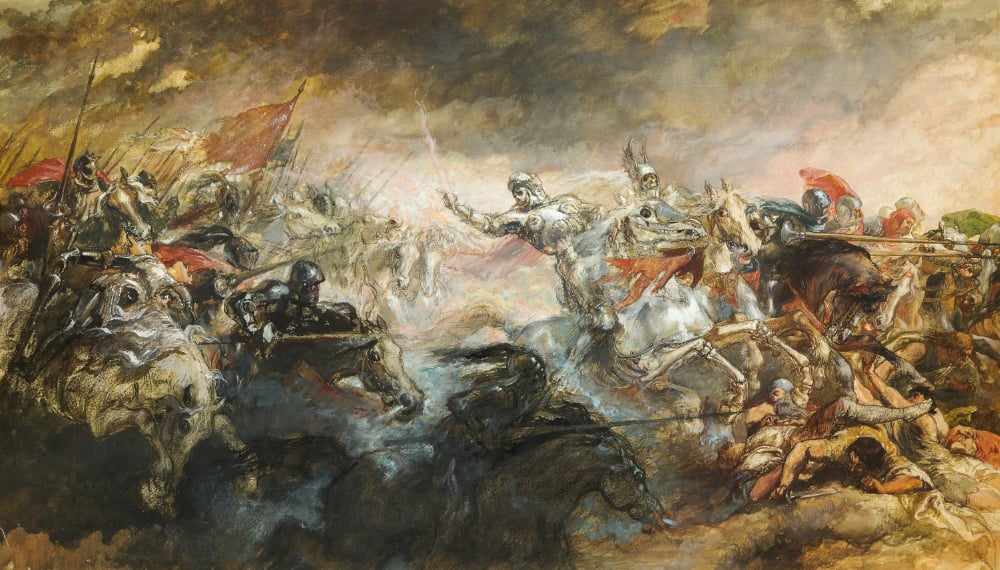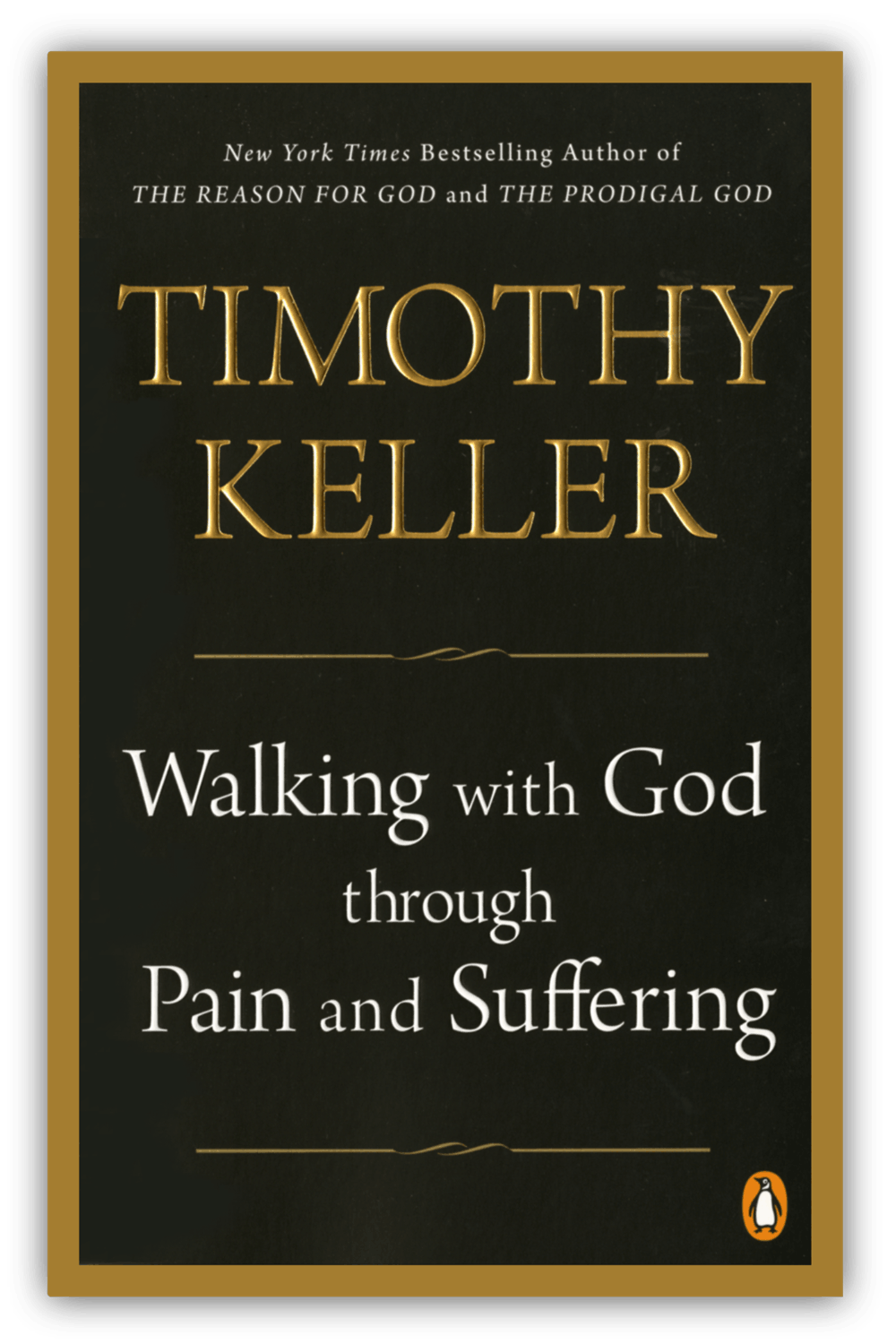Introduction by Kathy Keller:
This article was written by Tim a few weeks after the events of 9-11, when the Redeemer Presbyterian Church congregation was uneasy about their own safety and the stability of New York City. His insight is helpful to us now as many people feel uneasy about the state of the world — with wars, severe political division, and many in our younger generations feeling uncertain about the future.
In the last few weeks I’ve been doing my own personal study of Isaiah 6:1-13. “The year that King Uzziah died” (v.1) things looked bleak from Isaiah’s point of view. Uzziah had ended his life alienated from God (2 Kings 15:5; 2 Chron 26:16ff). And just a few years before, in 745 B.C., the ruthless imperialist Tiglath-Pileser III had taken the throne of Assyria and begun a campaign of terror and conquest. Israel was in his path. The king was dead and the kingdom of Israel looked like it would be swept away.
But one day Isaiah went into the temple and had his famous vision of God. Of course, no one can see God in his essence (John 1:18), but Isaiah was given a sight of a throne, of a massive robe that filled the entire temple, and of royal attendants all calling and singing about the sovereign majesty and dominion of the Lord. In short, he was given a vision of God’s “exalted kingliness” (J. Motyer, Isaiah: An Introduction and Commentary, 70). He cries, “My eyes have seen the King, the Lord Almighty” (v.5).
Verses 1 through 5 of Isaiah’s vision start and end like this: “The year the king died … I saw the real king!” The very foundations of his own country’s power and sovereignty were trembling, but then Isaiah sees the ultimate king, the ultimate ruler, the ultimate keeper of justice in the earth. He is so solid and real that he makes everything else tremble, shake, and smoke when he gets near it (v.4). Here then was real security. Here is the king that does not die. How profoundly comforting it must have been for Isaiah.
Before Isaiah could have the greater security that comes from knowing God’s kingliness, he had to experience the greater insecurity that comes from knowing God’s holiness.
But it is not that simple. Before Isaiah could have the greater security that comes from knowing God’s kingliness, he had to experience the greater insecurity that comes from knowing God’s holiness. Isaiah’s first response to this vision was “Woe to me! … I am ruined! I am a man of unclean lips and I live among a people of unclean lips, [for] my eyes have seen the King …” (v.5). The vision of God’s kingship had to shake him before it could make him secure and establish him. Surely Isaiah knew he was sinful and weak, but the clearer perception of God’s glory gave him a clearer perception of his own moral and spiritual failure. And so he simply cries out. He doesn’t even cry out for mercy or help, so profound is his sense of deserving rejection. The word “ruined” literally means “silenced.” He has no excuses, not even any appeals. He has no right to speak as a prophet.

What happened then was not surprising to Isaiah. He saw one of the angels fly toward him with fire in his hand (v.6). “In the Old Testament fire is not a cleansing agent but is symbolic of the wrath of God, … his unapproachable holiness, … and the context of his holy law” (Motyer, The Prophecy of Isaiah, 78). In his sensation of utter unworthiness, Isaiah thought that this was fire coming out of the presence of God, probably to destroy him (cf. Numbers 11:1-3). The use of “tongs” (v.6) showed that this indeed was divine fire that even the angels could not touch lightly. But to his shock, the fire instead is placed on his “lips,” the very point of his felt and confessed need. Surely it would have hissed or burned for a moment! But immediately he heard the words, “See … your guilt is taken away and your sin is atoned for” (v.7). How could this be? “This, however, was fire from the altar, the place where holiness was accepted … the death of a substitutionary sacrifice. The coal thus encapsulates the ideas of atonement, propitiation, satisfaction, forgiveness, cleansing and reconciliation” (Motyer 72). Surely Isaiah had “known” before that he was a sinner accepted by the mercy of God. But now he knew it in a more profound way.
Now (and only now) comes the new security of knowing the eternal king. Isaiah eagerly applies for a job (“Here am I. Send me!” v.8), but it is a job of preaching to a society that is breaking down. He is called to preach “until the cities are ruined and without inhabitants …” (v.11), and yet he is given the promise that out of all the disorder a new life will spring, all is not lost (v.13). Isaiah’s deep new security equips him for social breakdown, instability, and uncertainty. But the cost of this new security was (temporarily) a new insecurity as he experienced both his own weakness and God’s grace at a new level.
I said that I have been studying this passage personally, and now you see the reasons why. We too are facing a social uncertainty that is very new to most of us. We also wonder if we are entering a period not just of uncertainty but of instability. How will we get the new security we will need to face anything with a “Here am I”?
But in times of stress a general cognitive idea is not enough. His kingliness must be “real to the heart.”
I have come to see that the general idea of God’s “exalted kingliness” is vaguely comforting to the believer. But in times of stress a general cognitive idea is not enough. His kingliness must be “real to the heart” (as Jonathan Edwards would say) if it is to be a true source of security that enables us to look death in the face with calm. But this kingliness only becomes more than an idea through a deeper experience of self-awareness, repentance, cleansing, and new joyful apprehension of his grace. It is only as I let his holy majesty “de-stabilize” and then “re-establish” me that his royal majesty becomes a living, bright reality to me. The cost of a new “stability” of grace is a temporary “instability” of repentance and dependence on him. It is, however, a small cost in light of the wondrous benefit. “Gladness and joy will overtake them, and sorrow and sighing will flee away” (Isaiah 35:10).




